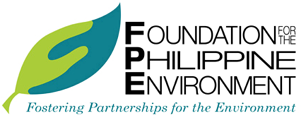From The Chairperson
2015-05-13 | FPE National RAC-Partners' Meeting | Opening Message
OPENING MESSAGE
Atty. Rose-Liza E. Osorio
FPE Board of Trustees Chair and CEO
Event: FPE National RAC-Partners' Meeting
Date: May 13, 2015
Venue: MO2 Westown Hotel, Iloilo City
From the men and women of FPE, welcome to the 2015 National Regional Advisory Committee (RAC)-Partners-Experts Advisory Pool (EAP) Meeting.
As the first and largest grant-making institution for Biodiversity Conservation and Sustainable Development (BCSD) in the Philippines, FPE was created by and for Philippine Non-Government Organizations (NGOs) and People Organizations (POs). Now, after 23 years of existence, FPE continues to respond to the challenging tasks of environmental protection and sustainable development in today’s rapidly changing context.
It strives to help reverse the rapid destruction of Philippine natural resource base through a strategic and integrated conservation plan and programs.
When FPE was first conceived, the decision to go for NGOs and POs was a deliberate one. NGOs and POs in the Philippines have shown a commitment to work on critical concerns, amongst difficulties and conditions of risk. They have shown innovativeness in their approach and flexibility in managing diverse situations, according to Dr. Delfin Ganapin Jr., former Executive Director, Board of Trustee (BOT) Chair, and now member of the General Assembly of FPE.
On FPE governance, FPE is now broadly represented by civil society groups who are deeply involved in the BOT, and the RAC in the three regions. Our RACs and partners play a very significant role.
The RAC advises the Board in policy-making, program development and governance. They serve as the crucial links between the Board and the regions and provide the “grounding” necessary for relevant policy decisions.
Today, we also have with us the FPE partners. Our partners carry the aspirations of the communities from Luzon, Visayas and Mindanao so that BCSD is not simply a goal, but a reality in the lives of the communities we serve.
In the same manner, the members of the EAP help us meet our targets based on facts or evidences. And like all of FPE’s stakeholders present here today, they help us in ensuring clarity on critical and priority environmental issues as well as assist in developing our Regional and National Agenda for the Environment that consider not only the ecological aspects, but also the socio-cultural and economic conditions of vulnerable communities that directly depend on healthy ecosystems for food, water, protection from damaging floods, and more.
It cannot be over-emphasized that significant challenges still remain. The environment continues to suffer an unrelenting assault thru over-exploitation, misuse, abuse and climate change. In particular, at the current rate of warming, coral reefs that provide food, jobs and storm protection will disappear completely by 2050, according to a recent May 2015 report released by the Global Change Institute in Australia’s University of Queensland. According to its lead author,
“The ocean is at greater risk now than any other time in recorded history. We are pulling out too many pollutants, and warming and acidifying the ocean to a point that essential natural systems will simply stop functioning.
“We have failed to look at the natural assets that our oceans provide, which is estimated to be at the least US$24 trillion, which if compared to the world’s top 10 economies would be ranked 7th with an annual value of goods and services of US$2.5trillion.”
In its 5th Assessment Report, the Intergovernmental Panel on Climate Change (IPCC) notes that human interference with the climate system is occurring, underscoring that there is a clear human influence in the climate.
We have a favorable legal framework for BCSD existing nowadays. We have environmental rules of procedure; and recently, we had a favorable judgment by the Supreme Court regarding the protection of the Tañon Strait Protected Seascape declaring unconstitutional the service contract in that strip of protected area between Negros Island and Cebu. However, our Supreme Court is not ready yet in declaring legal personality for non-human. That was one of the points we raised with the Supreme Court -- that resident dolphins and whales in Tañon Strait be given legal personality -- and in effect, it will be given the right to sue against destructive environmental activity. We hope that it will happen in the near future.
Hence, we cannot afford to be complacent. Because at the end of the day, we need to work harder, together, in order to secure the future we want for present and future generations. We need to ensure that our children and our children’s children can live well, feel well, have their needs met, and live healthy, happy and safe lives.
I thank you for your commitment and for being here today. We need to walk together towards a common vision. We need to use our fullest potential to achieve a common future we want. There is a need to complement our advocacies, whether it be for indigenous peoples, renewable energy, or for the Bangsamoro Basic Law (BBL) and/or against mining, logging, coal-fired power plants and the like, and integrate an environment perspective in all that we do. We have to upscale efforts from small scale to cover whole ecosystems, create significant impact or reform policies at the local and national levels. And we need to continue our extensive linkages, sharing of information and coordination of initiatives.
This is what we hope to trigger off today and the next two days of this national RAC-Partners-EAP Meeting. Let us start our conversations, continue our efforts and sustain our actions.
Thank you for sharing our journey through 23 years and beyond.
Mabuhay!

 DISPLAY CALENDAR
DISPLAY CALENDAR
 Read Policy Briefs
Read Policy Briefs
 View Our Partners
View Our Partners
 Access Grants MIS
Access Grants MIS
 Login to Webmail
Login to Webmail